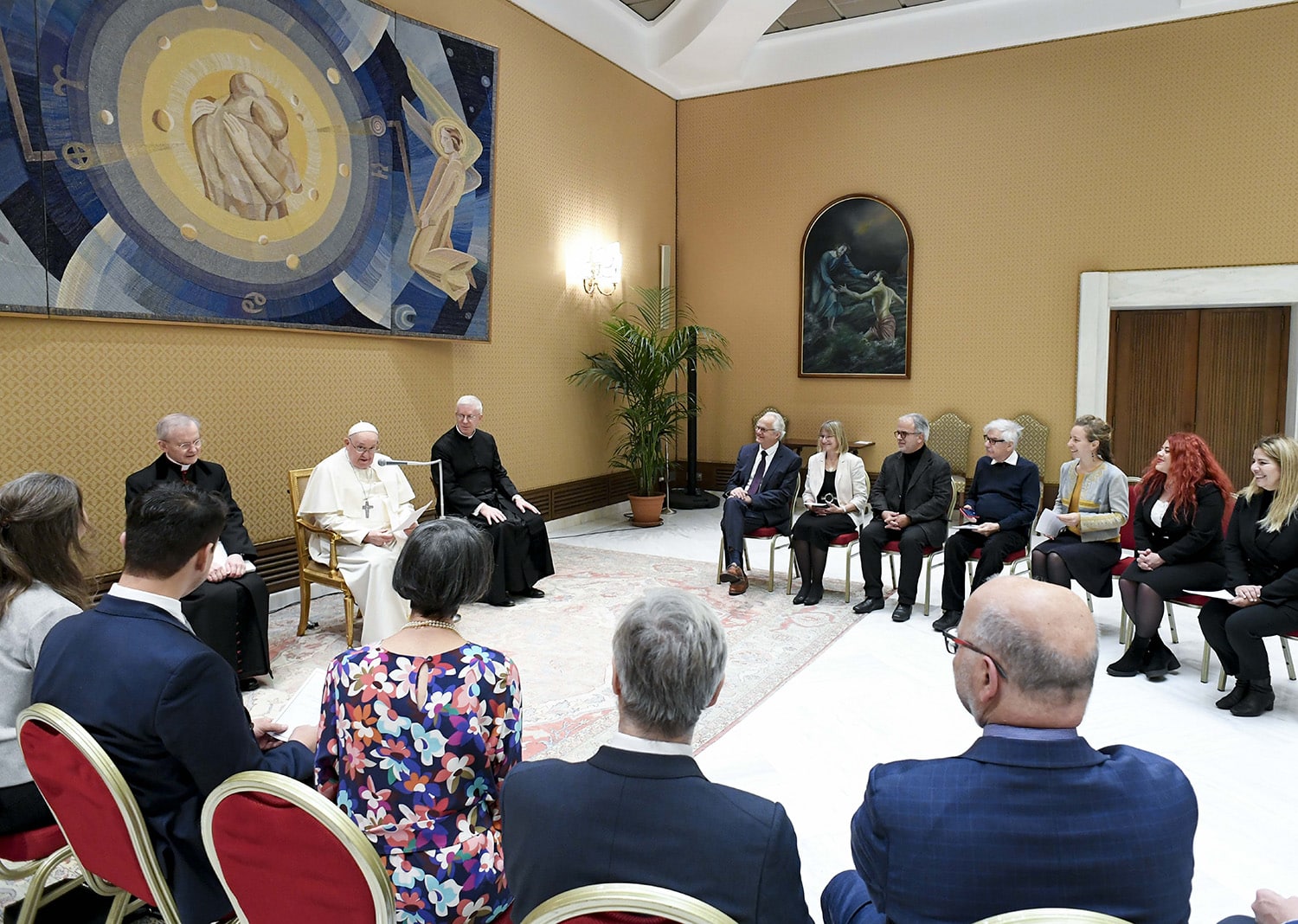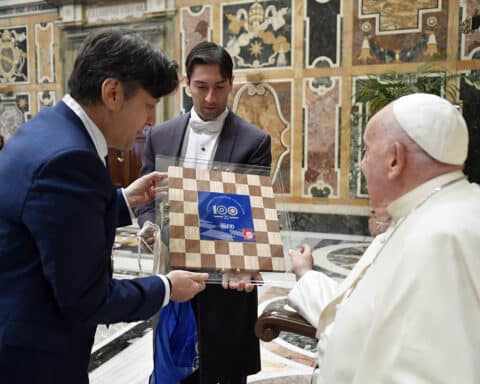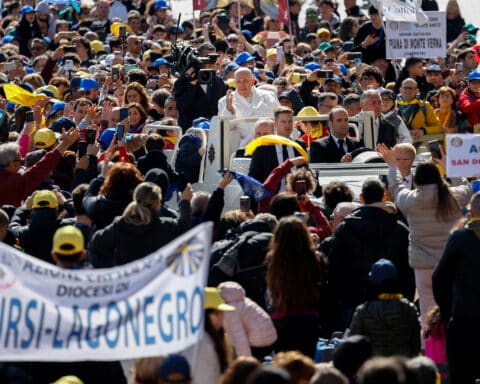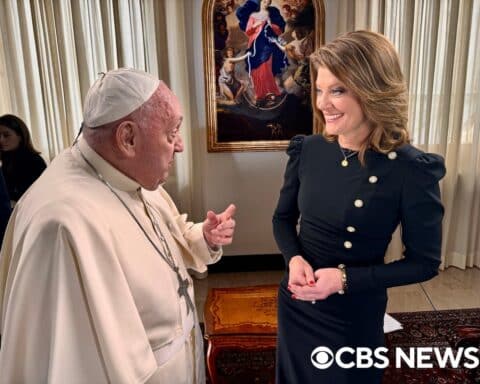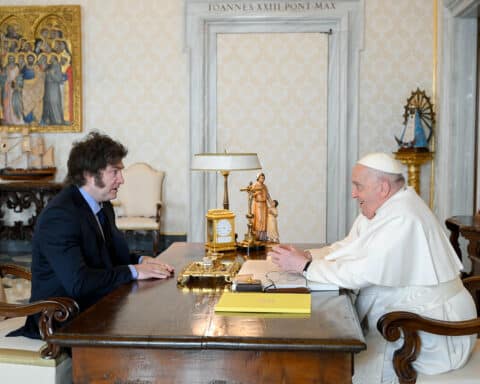VATICAN CITY (CNS) — Policies that are at the service of humanity “cannot allow themselves to be dictated by finance and the inner workings of the market,” Pope Francis said.
Instead, societies must consider how their people can share challenges and resources, the pope told representatives of a dialogue project bringing together socialists, Marxists and Christians.
During a meeting at the Vatican Jan. 10, Pope Francis told the group that beyond being a “moral virtue,” solidarity is a “demand for justice which requires correcting the distortions and purifying the intentions of unjust systems, including through radical changes of perspective in the sharing of challenges and resources among people.”
The dialogue project, known as DIALOP, was formed after a meeting of two left-wing European politicians, a member of the Focolare movement and Pope Francis in 2014 in which they discussed the need for continued dialogue between the European left and Christians. DIALOP now holds partnerships with various European universities, educational institutions and Catholic organizations, and it has launched a project to develop an academic curriculum integrating Christian social teaching, Marxist social criticism and feminism.
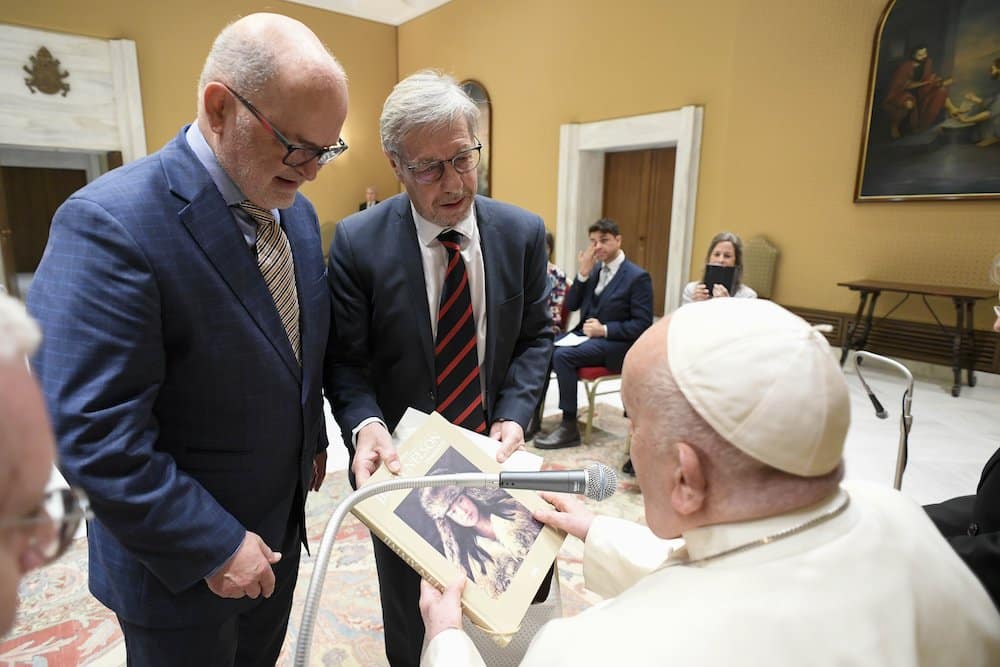
Working for a better world
Pope Francis encouraged the project’s representatives to be open to new paths forward and to “break the mold” of their thinking through dialogue. “In a time marked at various levels by conflicts and splits, let us not lose sight of what can still be done to turn things around,” he said.
The pope asked them to work “against rigid approaches that separate” people and instead have open hearts in their dialogue and cultivate their capacity to listen while “excluding no one at the political, social and religious level.”
“Today, in a world divided by wars and polarization, we run the risk of losing the ability to dream,” the pope told the group. “This is the invitation I give also to you, do not back down, do not surrender, do not stop dreaming of a better world.”
“How often over the centuries have great dreams of freedom and equality, dignity and fraternity — a mirror of God’s dream — produced breakthroughs and progress,” he said.
The pope asked them not to forget society’s marginalized people, noting that “the measure of a civilization is seen by how the vulnerable are treated.”
And he insisted that people need to remember the dictatorships of the past as a caution for the present. Pope Francis used the example of the Nazis; “they discarded the vulnerable, killed them, rejected them: the poor, unemployed, homeless, immigrants, the exploited and all those whom the throwaway culture turns into waste.”
Pope Francis also stressed that changing society requires “a commitment to combating the scourge of corruption, abuse of power and lawlessness.”
“It is only in honesty that healthy relationships can be established,” and people can “cooperate faithfully and effectively in building a better future,” he said.

